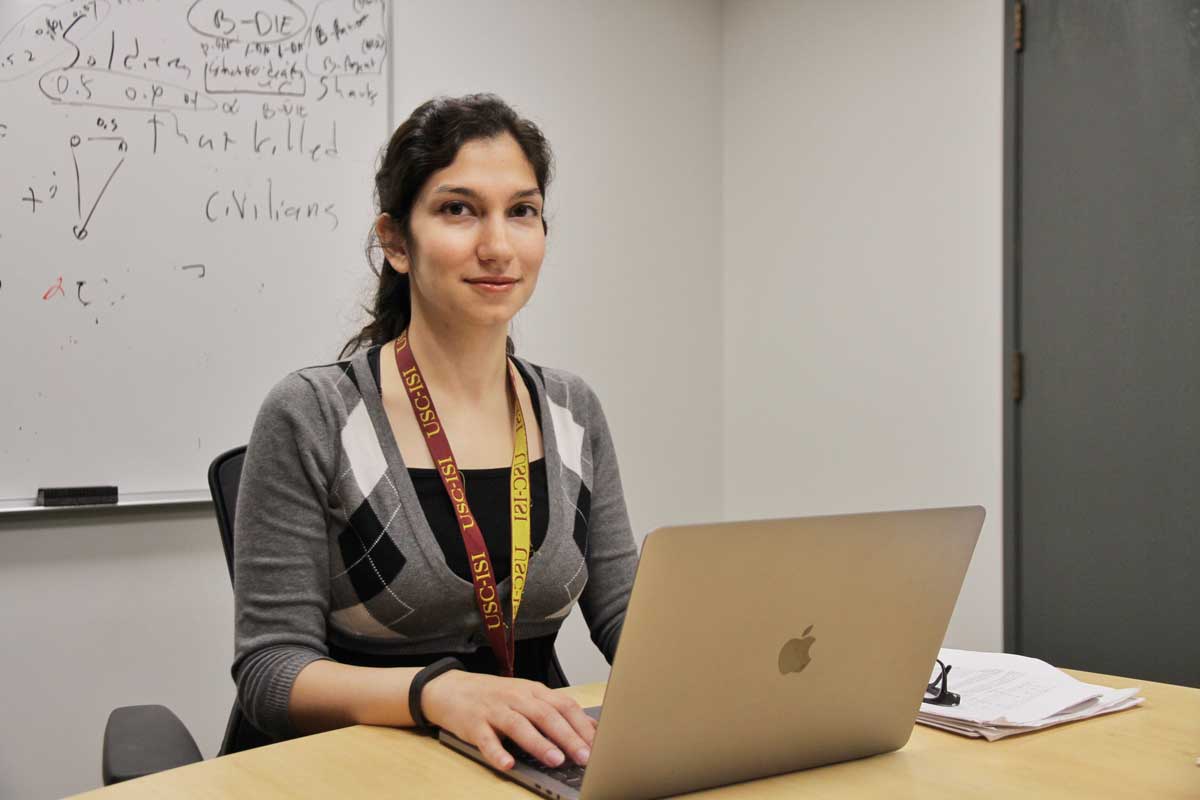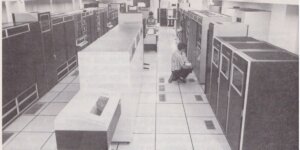
Nazgol Tavabi at ISI. Photo/Hoatian Mai.
Nazgol Tavabi, a Ph.D. student at ISI, has participated in award-winning large-scale projects with her advisor Kristina Lerman, a research assistant professor in computer science and ISI principle scientist. Originally from Iran, at ISI, Tavabi is part of the Machine Intelligence and Data Science research group, developing machine learning algorithms to analyze data for a variety of applications, from social science to biomedicine and cybersecurity. Tavabi sat down with us to share her experiences.
Hi Nazgol, so, what are you working on at the moment at ISI?
Well, we just finished working on the EFFECT project (Effectively Forecasting Evolving Cyber Threats), trying to predict cyber-attacks using data from different sources, such as dark web data, security blogs and Twitter. We picked up signals and built models to predict attacks for different organizations. We are now transitioning to another project where we’re trying to understand the well-being of medical workers by analyzing health data.
Looking back, what were your motivations for joining ISI?
I found ISI a very appealing option for my Ph.D. The projects are very similar to what you would encounter working in industry after finishing your Ph.D. It’s not purely research—you’re involved in the whole process, including the business side and the relationship with the project sponsor.
Working at ISI has really encouraged me to seek a combination of academia and industry and opened my eyes to opportunities I might not have thought of, like research scientist roles.
What is it like working with different research groups on big projects?
A lot of the research projects require multiple advisors collaborating together and people from multiple labs getting in the same room. You get the chance to work with leading scholars with different expertise, while keeping the freedom and flexibility to work on smaller components within your lab or by yourself. At ISI, we all get small offices to ourselves, but these frequent collaboration meetings really increase our interactions among different labs.
What are your favorite things about working at ISI?
ISI has a friendly vibe. At lunch, many people from different advisors’ labs come to the main kitchen to eat together. It isn’t necessarily the case in other workplace or other academic institutes.
And the location of Marina del Rey is definitely a big positive. I remember when I was interviewing with Kristina Lerman via Skype for this program, she ended the interview with saying to me, “Oh, by the way, we also get this view at work…” And she turned her laptop to her office window facing the sea and the bay.
As a kid, did you always know you want to be in the computer science field?
Yes, from junior high. Back then, I signed up for an extracurricular class in robotic programming and I really enjoyed it. I think a lot of schools should do that for kids at an early age. When you teach kids to code something simple, they might not find it interesting, but when you can actually code robots and see that code turn into actions, you can show them the power of programming.
After that class, I started to participate in robotic competitions. Later I was gradually introduced to machine learning and AI, which were very interesting to me. Then, for my undergrad at the Sharif University of Technology in Tehran, Iran, I chose computer science as my major.
What would be your advice to younger computer science enthusiasts?
I think it would be much better to start at an early age, especially when it comes to coding. It’s really just like learning different languages. When you start younger, you can learn them much more easily. Now, it has become more and more competitive when it comes to machine learning and AI. So you really have to step up your game.
Published on June 27th, 2019
Last updated on May 17th, 2021











